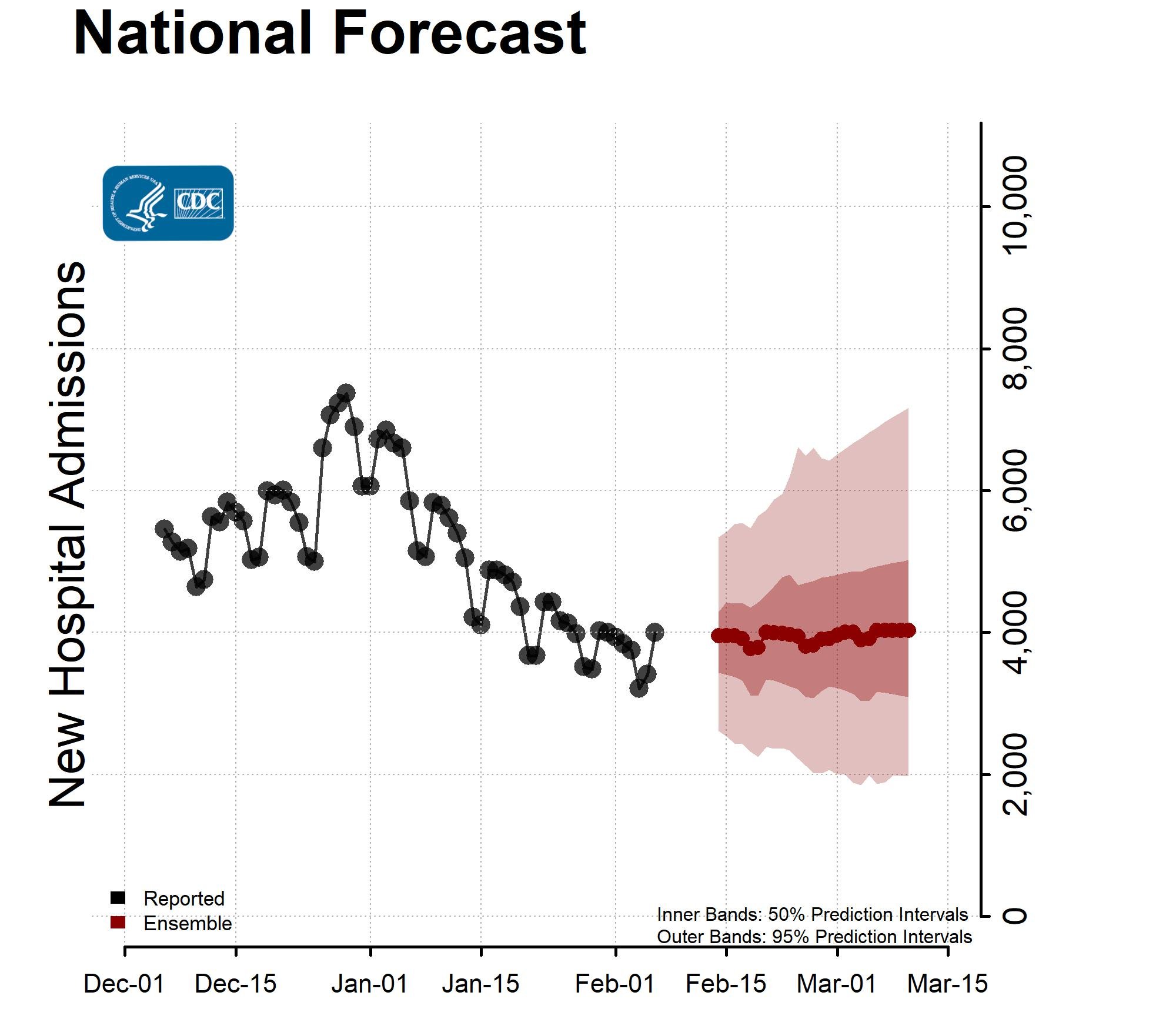The importance of COVID testing in workplace and healthcare settings in 2023
Although we’re only two months into 2023, there’s plenty to celebrate regarding our fight against the coronavirus pandemic: peak coronavirus infection rates have been trending lower since last year, state restrictions have been lifted, and travel rates are back to pre-pandemic levels. However, as we adjust to our new normal, there are still 30,000 reported new weekly COVID cases in the US, with over 3,500 new weekly hospital admissions*. This is leading to over 400 deaths daily due to COVID - now the third highest cause of death in the United States.
CDC National Forecast Data* 2/23/23
With tens of thousands of new COVID cases still occurring weekly, it’s important for all of us to continue to remain safe and vigilant for our loved ones and those most at risk of serious disease. At Uh-Oh Labs, here are 6 reasons we believe accurate, rapid, and regular testing at work and in healthcare organizations will remain a crucial tool to help protect ourselves and others:
Identify infected individuals early: High-sensitive (e.g. PCR-quality) COVID testing helps identify individuals who are infected with the virus days before a rapid antigen test. By testing employees and patients, businesses and healthcare organizations can quickly identify infected individuals and have them quarantine to prevent further spread.
Ensure a safe work environment: Testing can help businesses and healthcare organizations ensure that their employees and patients feel safe in the workplace. Regular testing can provide reassurance that everyone is taking steps to prevent the spread of the virus.
Plan for workforce needs: Testing can also help businesses and healthcare organizations plan for their workforce needs. Knowing which employees are infected and which are not can help organizations make informed decisions about staffing and resource allocation, especially when in person work is critical, such as for healthcare organizations.
Limit transmission and absenteeism: Regular COVID testing can limit absenteeism due to illness. By identifying infected individuals early and providing them with appropriate care and support, preventing spread in the workplace will prevent others from needing to call out sick. Additionally, by catching COVID early, at-risk employees will be able to receive any necessary treatment to limit the severity and duration of COVID.
Protect vulnerable populations: Testing can help protect vulnerable populations, such as older adults, those with underlying health conditions, and immunocompromised individuals, by allowing for limited transmission and quarantine of infected individuals. This extends out of the workplace as well - as people can be infectious several days before symptoms, early detection can allow for infected individuals to adjust any upcoming social or travel plans.
Protect public health: Finally, COVID testing is an important tool in protecting public health. By identifying and reporting infections, public health authorities can also receive accurate numbers around community transmission levels. This can also help identify regional and seasonal trends, and will assist in medication and vaccination planning, as well as monitoring of any new variants.
As offices and organizations continue to reopen, let’s make sure they stay open by regularly testing COVID so we can protect the people we care about. Uh-Oh Labs is a company founded by scientists and experts focused on developing affordable and accurate COVID tests (and beyond) for a healthier community. Our UOL COVID-19 Test Starter Pack contains everything you need to support your business or healthcare organization. Start testing with ease: https://uhohlabs.com/starter-pack.
Credit:
* https://www.cdc.gov/coronavirus/2019-ncov/covid-data/covidview/index.html
* https://www.cdc.gov/coronavirus/2019-ncov/science/forecasting/hospitalizations-forecasts.html



